News
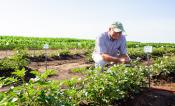
Agriculture futurist: Don Ort
Meet Donald (Don) Ort—Robert Emerson Professor at the University of Illinois—whose work is dedicated to increasing yield potential through improving crops' photosynthetic efficiency.

Rice genetically engineered to resist heat waves can also produce up to 20% more grain
Don Ort comments on a photosynthetic breakthrough in rice.
By: Erik Stokstad || Nature
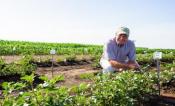
Donald Ort awarded the Charles Reid Barnes Life Membership Award by ASPB
Our Deputy Director Donald Ort was recently awarded the Charles Reid Barnes Life Membership Award from the American Society of Plant Biologists (ASPB) for his dedication and significant contributions to plant biology.
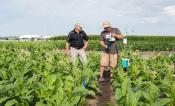
Can better photosynthesis help feed the world?
As human population growth fuels the need for increased crop yields, researchers look to engineer plants that perform photosynthesis more efficiently.
By: Erin Zimmerman | Ensia
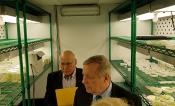
Senator Durbin calls for more research funding after touring RIPE project
U.S. Senator Dick Durbin visited the RIPE project and said he hopes to increase federal funding for scientific research.
By: Jim Meadows | Illinois Public Media
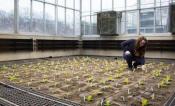
Reclaiming lost calories: Tweaking photosynthesis boosts crop yields
As the global population grows and diets change, we need to improve crop yields to increase food production by between 25 and 70% by 2050.
Plant researchers brace for population explosion
By 2050 the world will require nearly twice as much food. Three scientists explain how this feat may be possible without exacerbating climate change.

Will climate change cause food sources to dwindle?
The heat waves, droughts, wildfires, and floods that have become the norm in recent years have serious implications for the food supply.

Wired In: Donald Ort
Wired In: Meet Donald Ort, the Robert Emerson Professor of Plant Science and Crop Sciences at the University of Illinois.
By: Paul Wood | The News-Gazette

Plant scientists have found a way to 'hack' photosynthesis. Here's why that's a big deal
If the preliminary research pans out, we may have a new way to feed the world's growing population.
By: Denise Chow | NBC News
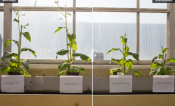
Scientists patch photosynthesis glitch to make plants grow 40 percent larger
Scientists from the University of Illinois have worked to correct for a flaw in photosynthesis which could improve crop yields by as much as 40%.
By: Ryan Whitwam || Medium
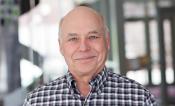
Reengineering photosynthesis for adaptation to global climate change
Donald Ort's area of expertise lies in the area of photosynthesis and the ability to reengineer it to be adapted for global climate change and to improve its efficiency in agricultural situations.
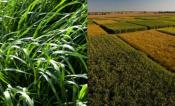
DOE grants $10.6 million to produce more biodiesel, biojet fuel
The U.S. DOE awarded the University of Illinois a $10.6 million, five-year grant to transform two crops into sources of biodiesel and biojet fuel.
By: Claire Benjamin || Shared via Association of American Universities
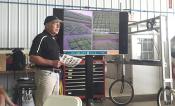
RIPE project shows off progress in photosynthesis research
RIPE Project Associate Director Don Ort discusses field trials that have shown increased biomass in tobacco plants from genetic modification of photosynthesis.

Overlooked water loss in plants could throw off climate models
Errors could cause researchers to overestimate the rate of photosynthesis when water is scarce.
By: Heidi Ledford | Nature
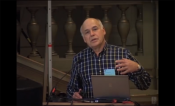
Crops FACE the future
Don Ort gives a talk titled "Crops FACE the future."
By: Annual Reviews